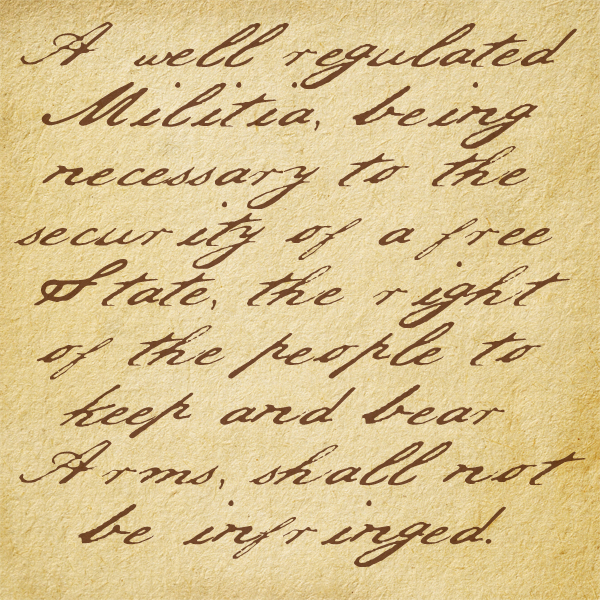I have never read anything published by Professor Michael Waldman on the topic of the Second Amendment until I read this article in Politico, promoting his new book, The Second Amendment: A Biography. This book looks a lot like many of Adam Winkler’s assertions on early gun control laws, combined with a bit of CSGV tilting at windmills, reasserting ideas that have been thoroughly discredited in the Standard Model literature. From the Politico article, we begin with a marginalization of the Second Amendment as a quaint, meaningless passage in the Bill of Rights from the founders:
But in the grand sweep of American history, this sentence has never been among the most prominent constitutional provisions. In fact, for two centuries it was largely ignored.
Yes, because for two centuries, there wasn’t any serious attempts to restrict it. Absent the laws on Title II firearms, under the National Firearms Act, almost every piece of gun control now present at either the state or local level was enacted in the past half-century. The research into the Second Amendment was a direct response to the Gun Control movement. It would not have existed without it.
Though state militias eventually dissolved, for two centuries we had guns (plenty!) and we had gun laws in towns and states, governing everything from where gunpowder could be stored to who could carry a weapon—and courts overwhelmingly upheld these restrictions. Gun rights and gun control were seen as going hand in hand.
This is channeling some of the arguments in Professor Winkler’s work, Gunfight. But Clayton Cramer has probably done the most thorough research on this area with his books, Concealed Weapons Laws of the Early Republic, For the Defense of Themselves and the State, and Armed America: The Remarkable Story of How and Why Guns Became as American as Apple Pie. But I could spent paragraphs just listing out the academic works on this subject. Citing Patrick Henry’s famous quote that “The great object is, that every man be armed.â€:
But if you look at the full text, he was complaining about the cost of both the federal government and the state arming the militia. (“The great object is, that every man be armed,†he said. “At a very great cost, we shall be doubly armed.â€) In other words: Sure, let every man be armed, but only once! Far from a ringing statement of individual gun-toting freedom, it was an early American example of a local politician complaining about government waste.
So the suggestion is that Henry would have promoted the idea that we can limit individuals to only one firearm? That’s quite a stretch. There’s another bit where he speaks of Jefferson quotes in context, where Jefferson uses the phrase “One loves to possess arms, though they hope never to have occasion for them,” noting that the context shows Jefferson used this phrase as a metaphor. But Jefferson was an avid arms collector, as was George Washington, to whom Jefferson wrote this passage. You can find passages in writing where both Jefferson and Washington describe carrying firearms in private self-defense. It’s simply hard to believe either of these men would have had any sympathy or even notion of modern gun control laws, but in order to preserve the modern 20th century sentiments on the right to keep and bear arms, they have to in fact turn the tables, and argue that it’s our view that is the modern invention, and not theirs.
I have purchased the Kindle Edition of his book. If I manage to get through it, I’ll review it.






